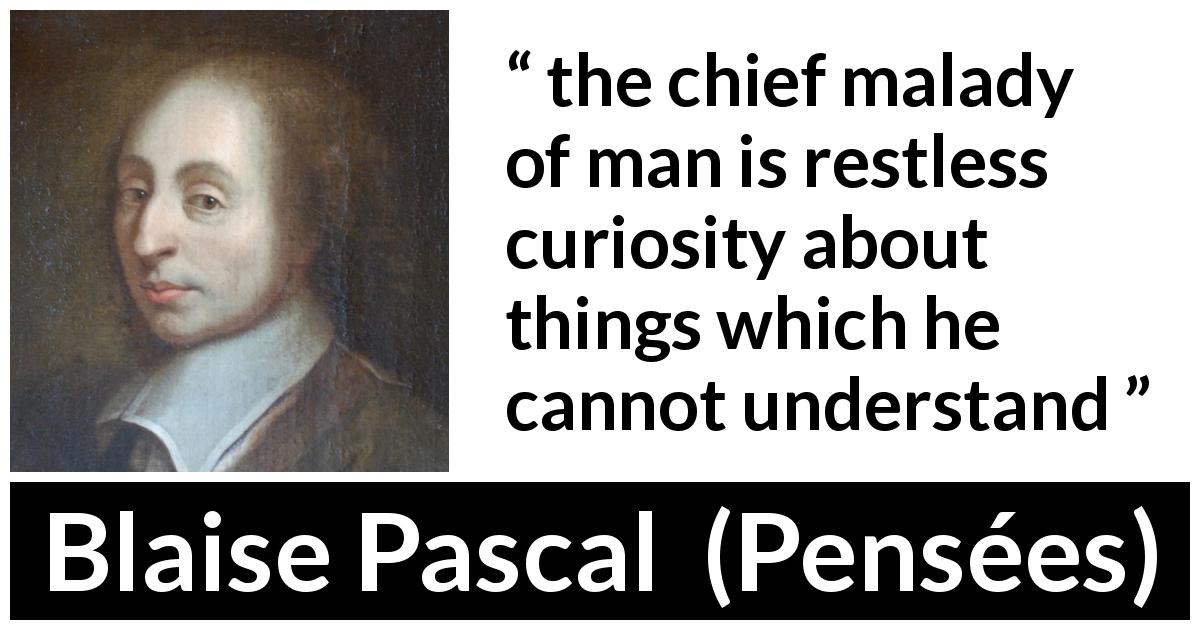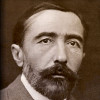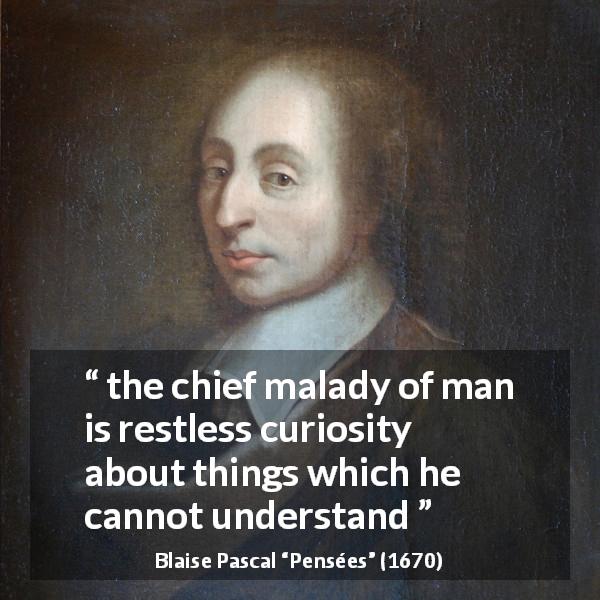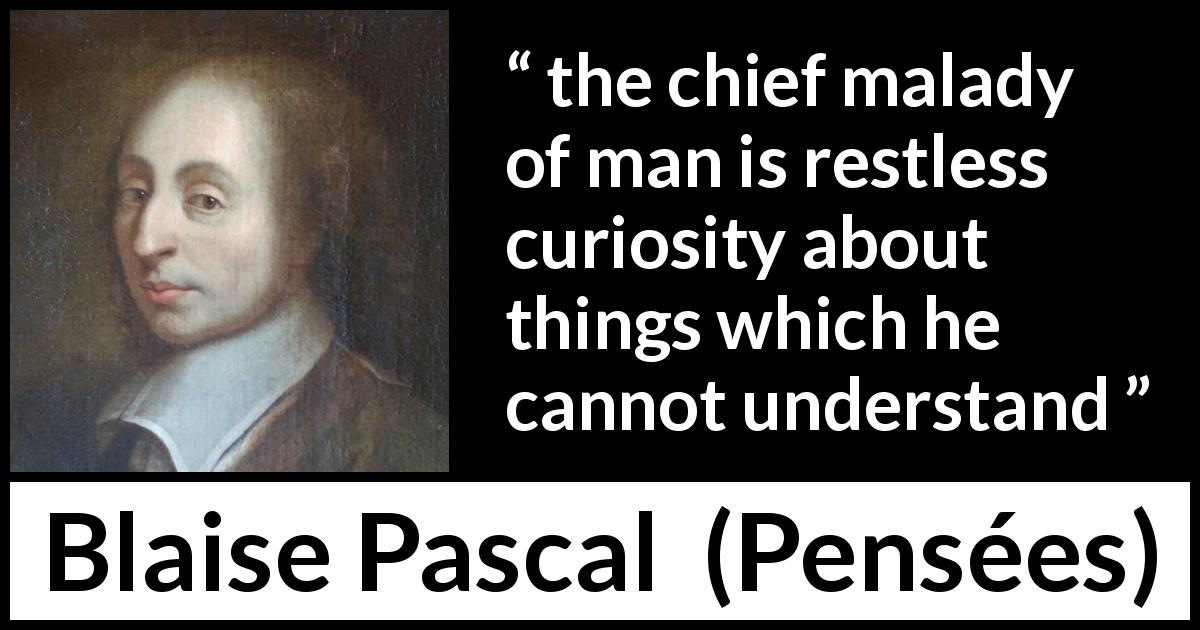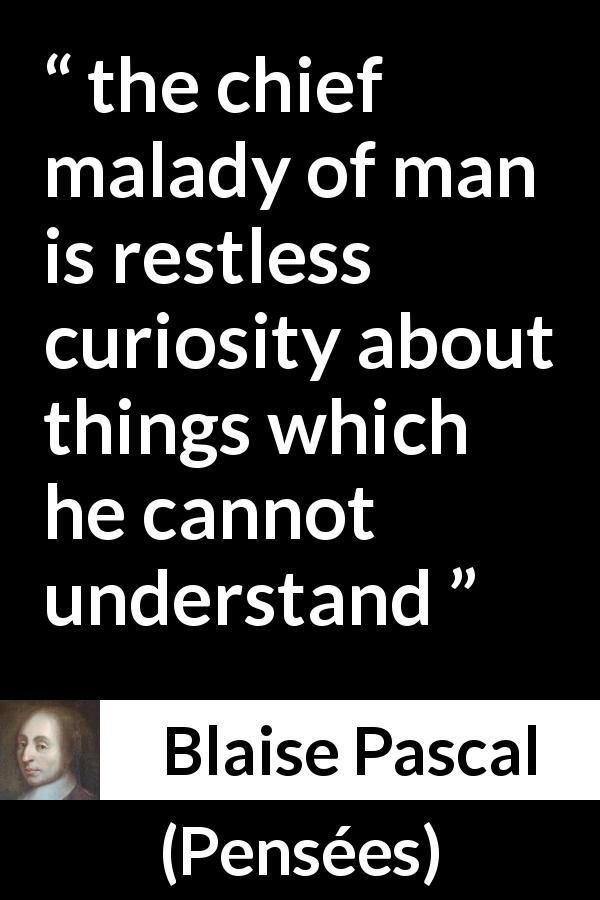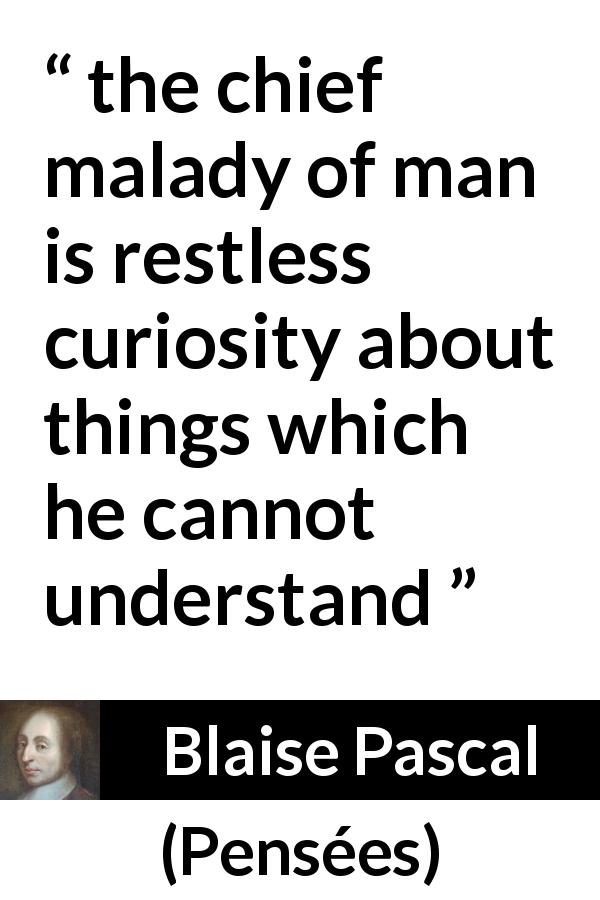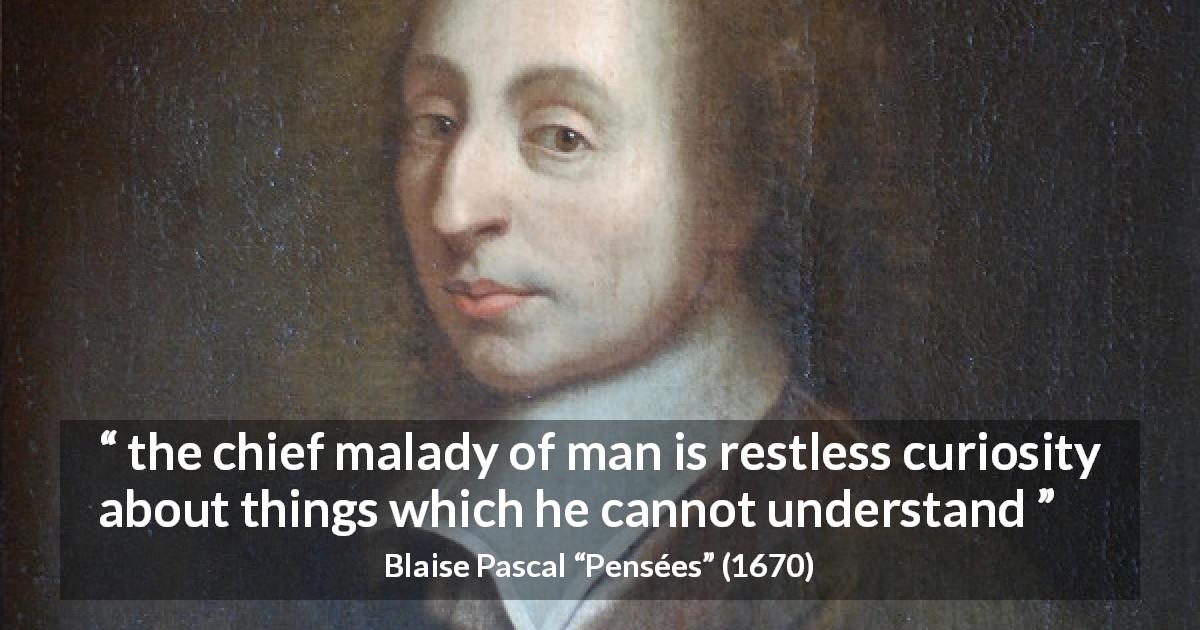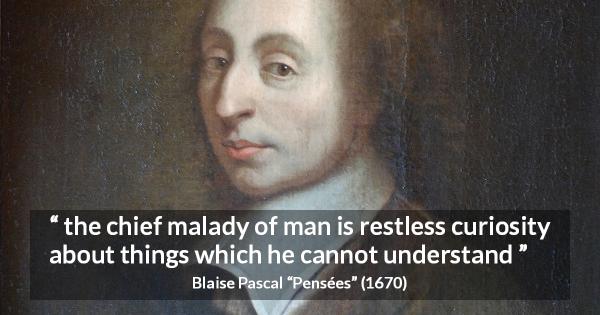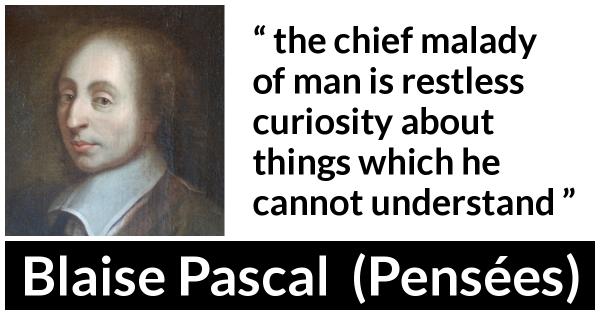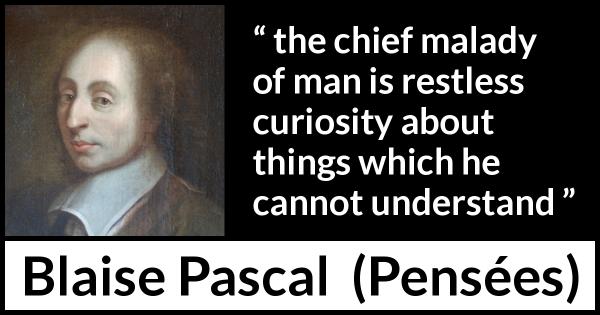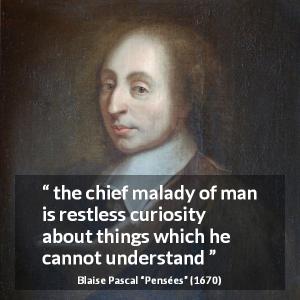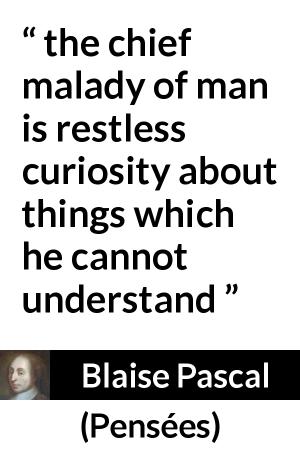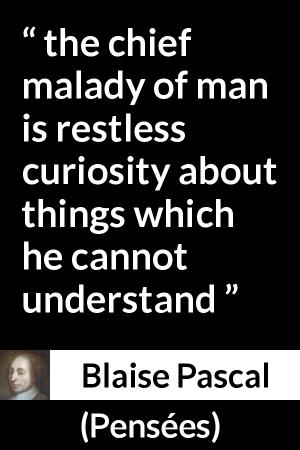“ the chief malady of man is restless curiosity about things which he cannot understand ”
Blaise Pascal, Pensées (1670). copy citation
| Author | Blaise Pascal |
|---|---|
| Source | Pensées |
| Topic | knowledge curiosity |
| Date | 1670 |
| Language | English |
| Reference | |
| Note | Translated by W. F. Trotter |
| Weblink | http://www.gutenberg.org/files/18269/18269-h/18269-h.htm |
Context
“When we do not know the truth of a thing, it is of advantage that there should exist a common error which determines the mind of man, as, for example, the moon, to which is attributed the change of seasons, the progress of diseases, etc. For the chief malady of man is restless curiosity about things which he cannot understand; and it is not so bad for him to be in error as to be curious to no purpose.
The manner in which Epictetus, Montaigne, and Salomon de Tultie[9] wrote, is the most usual, the most suggestive, the most remembered, and the oftenest quoted; because it is entirely composed of thoughts born from the common talk of life.” source
The manner in which Epictetus, Montaigne, and Salomon de Tultie[9] wrote, is the most usual, the most suggestive, the most remembered, and the oftenest quoted; because it is entirely composed of thoughts born from the common talk of life.” source
Original quote
